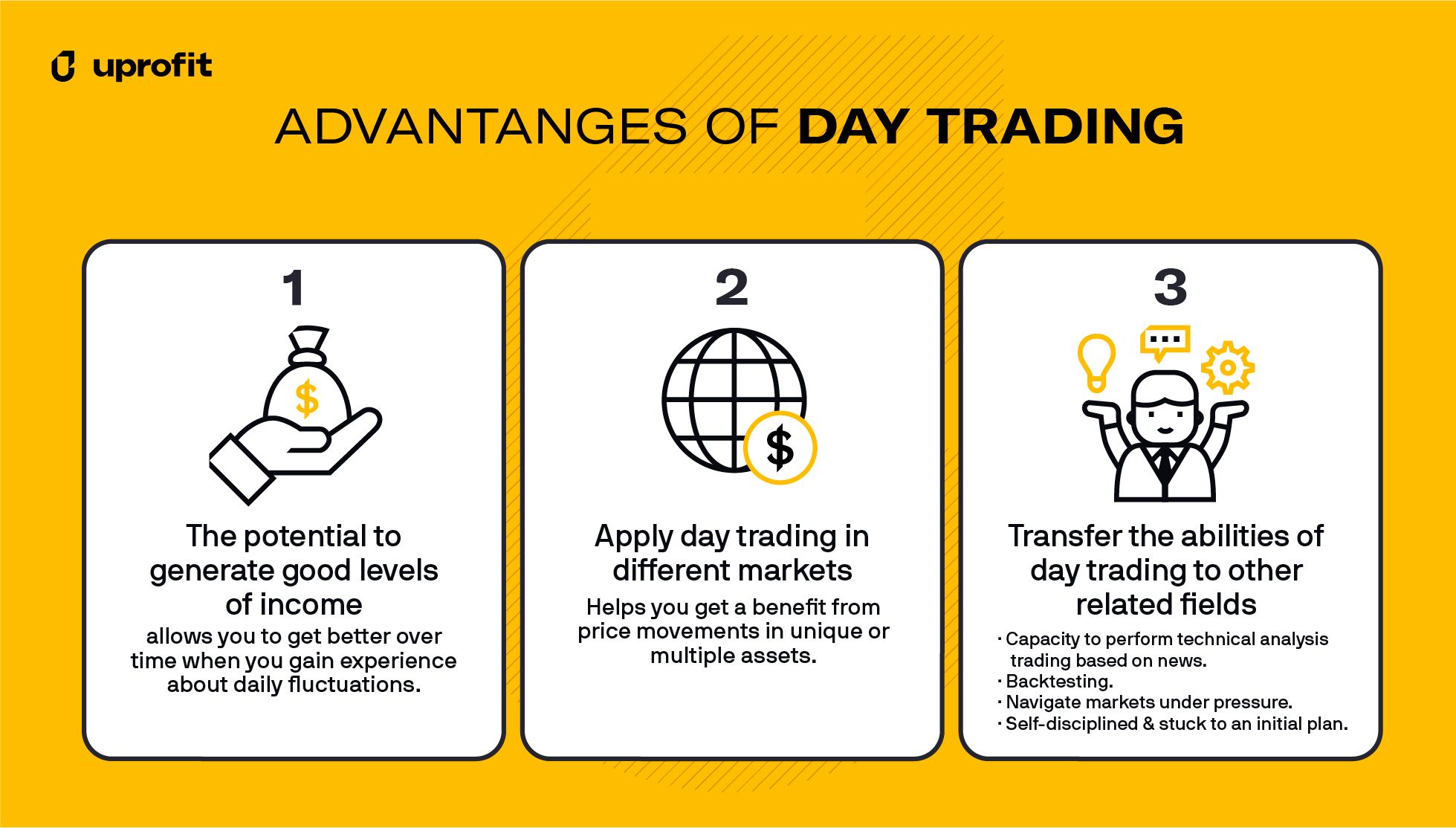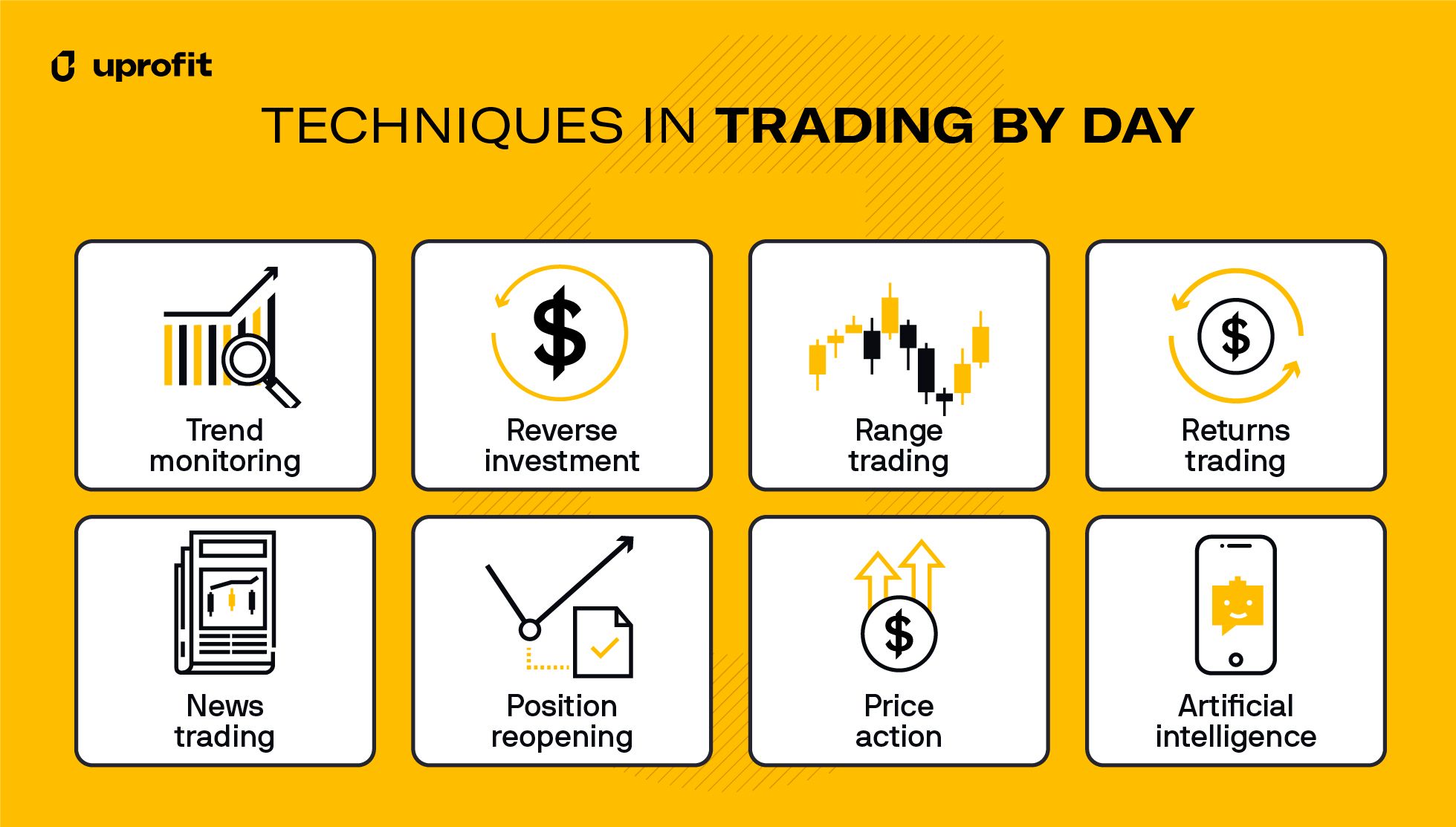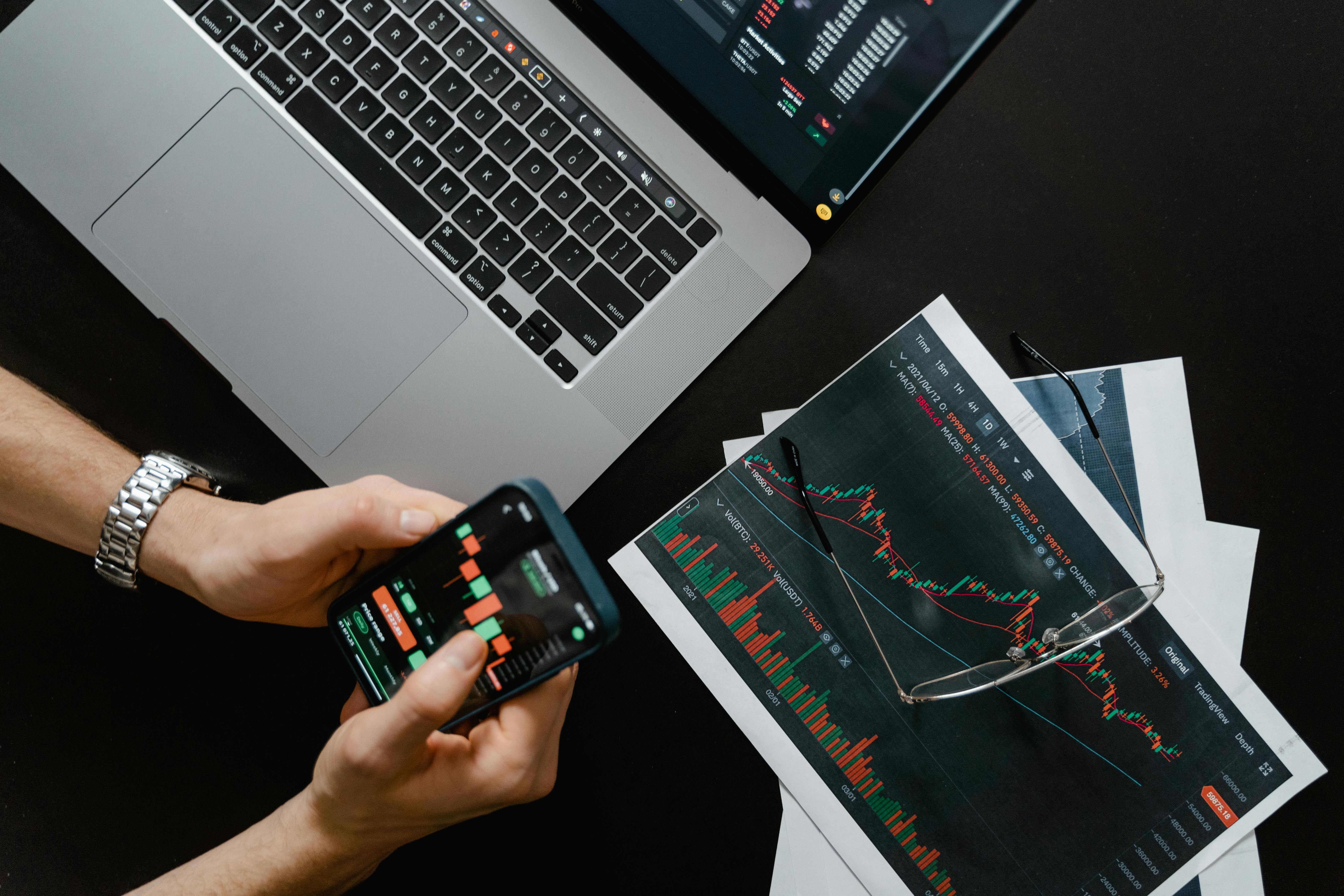Day trading is a strategy within the commercialization of financial assets. It is a form of active trading in which the trader opens and closes trades on the same day.
Some traders do it in an interval of hours, minutes or even seconds. The profits are made thanks to the market variations that occur intraday.
When operating in the futures market, a trader can use different strategies according to the time he or she has available, their consistency, their goals and multiple other factors.
Day trading is one of many tactics that a trader can follow to obtain profits from futures assets contracts.
There are many different strategies that can be used in futures trading. Swing trading, for example, is a method in which a trader leaves a trade open for a long period of time, sometimes days, and sometimes even months.
Each unique method has its own advantages and disadvantages, as well as its tricks and specific challenges.
Another strategy option for traders is called scalping. This is a form of day trading but this time with trades being opened and closed in a much shorter periods of time.
Some scalpers are opening and closing the trades in such an extreme manner that they find it is necessary to have a high frequency robot.
Keep in mind, high frequency robots are not allowed by many platforms and prop firms, but it can be profitable in markets with high levels of liquidity.
Day trading requires traders to buy and sell contracts constantly, with operations placed and completed on the same day.
It is definitely a method in which traders can’t remain passive, and that’s one of the reasons why we can see many struggle to be able to sustain this strategy over long periods of time.
Advantages of Day Trading
Like any other strategy, day trading has its advantages and disadvantages.
One of the main reasons why people get interested in day trading is the potential it has to generate good levels of income for the trader.
This can get better over time, when the trader gains experience and knowledge about the daily fluctuations of the market.
Another advantage is the possibility to apply this strategy in different markets.
Many traders, to ensure an income throughout the day, operate simultaneously in one or various trading markets. This way they can benefit from price movements in unique or multiple assets.
Related to this last advantage, is the possibility to transfer the skills of day trading to other fields related to trading.
For example, the capacity of performing technical analysis, trading based on news, backtesting, navigating the markets under pressure, being self-disciplined and sticking to an initial plan.
All of the above represent skills that are valious in several fields. Also, when a trader gains experience in day trading, usually they become an expert in at least one kind of asset, which can be used for other activities similar to trading.

Disadvantages of Day Trading
When looking at the disadvantages of this strategy, one reason why not every trader can get into day trading is the high costs it requires to start operating.
The payment for several commissions per day is much more expensive than when a trader only has to pay for commissions on one trade. This is why many traders seek brokers that have low operative fees.
Another big disadvantage is the high risk it takes to get into day trading. It is the flip side of the chance to win high amounts of money.
This is due to the high liquidity of the markets, with big fluctuations that can benefit or prejudice the profits of the day trader.
That is why it can be convenient to get into trading with an evaluation program like the ones we offer in Uprofit.
Our platform is all about finding traders that are suitable for the task and connecting them with a pro trading firm. This is so that they can trade in their own way, with whatever strategy they prefer, without putting their own capital at risk.
In addition to this, in Uprofit we don’t have a consistency rule or any limitations on trading news, which is perfect for traders that are looking to get into day trading.
Our only advice for traders is that you have to be able to benefit from positive days and use caution on losing ones.
We know not every day can be a winner but if you limit your risk and monitor your capital closely, then you can still stay on the positive side on the whole, even with a losing day.
Last but not least, day trading is a practice that requires composure, discipline, financial literacy, persistence and more. Some studies have shown that 80% of traders that start in this form of trading quit in the first two years.
Sometimes, a trader can take a few losing trades causing them to negatively affect their account balance, but with proper risk management, as mentioned above, they can still generate positive results with just a few winning trades.
All these characteristics make it very difficult to sustain this practice over time. It tests traders' nerves on an almost daily basis.
It is hard not to regret a losing trade or to lament over a loss, and that's why the psychological aspect is so important to remain operating with a day trading strategy.
Day Traders’ Strategy
Traders that get into day trading usually make about five to eight trades in a day. Others find automated trading a better alternative, and make dozens of trades everyday.
The main practice of day traders is to avoid leaving an operation open overnight so that there are no variations in prices to which they can not respond.
When day traders are not actively operating in the market, usually many of them take some time to study the different futures markets.
They monitor tendencies and dive into the big amount of information about futures trading, like investigations, analysts notes, news or share the knowledge with a fellow trader.
All of this is fundamental when it comes to day trading, because it is the only way to be prepared to speculate over the futures market without quitting before time due to frustration, nerves or lack of consistency.

There are some common techniques day traders use to make profits out of this specific practice:
- Trend monitoring: this kind of trader buys an asset that is on the rise, and sells the ones that are dropping.
- Reverse investment: in this method, traders expect that prices on the rise will fall, and prices that are dropping will start going up, and operate based on that notion.
- Range trading: the traders that follow this tactic buy assets when they are at their lowest price and sell them when they are at their highest. It takes knowledge of the ranges of different markets.
- Returns trading: this kind of trading benefits from the reimbursement that ECN technology gives for trading.
- News trading: this technique consists in watching out for assets that announce good or bad news to proceed to buy or sell them, respectively.
- Position reopening: to be able to follow this strategy, it is necessary to have a broker that permits it, because they need to allow the trader to buy a position that has already been closed.
- Price action: it is a minimalist approach which takes into account the speculation over the market, based on what the trader knows about it.
- Artificial intelligence: this is the tactic used to trade with extreme scalping, a practice forbidden by many platforms, including Uprofit.
Trading in short periods of time is one of the many strategies that can be used in futures trading.
It certainly can make a trader win big amounts of money, but it can also make them loose and even quit trading.
It is very convenient, if you want to get into day trading, to start with a platform that gives you freedom to do things your own way, but also evaluates your level of preparation to get into a competitive market like this, with real money at stake, and sometimes a large amount of it.
This is the differential value of Uprofit, a platform designed to benefit traders, no matter the strategy they follow.

